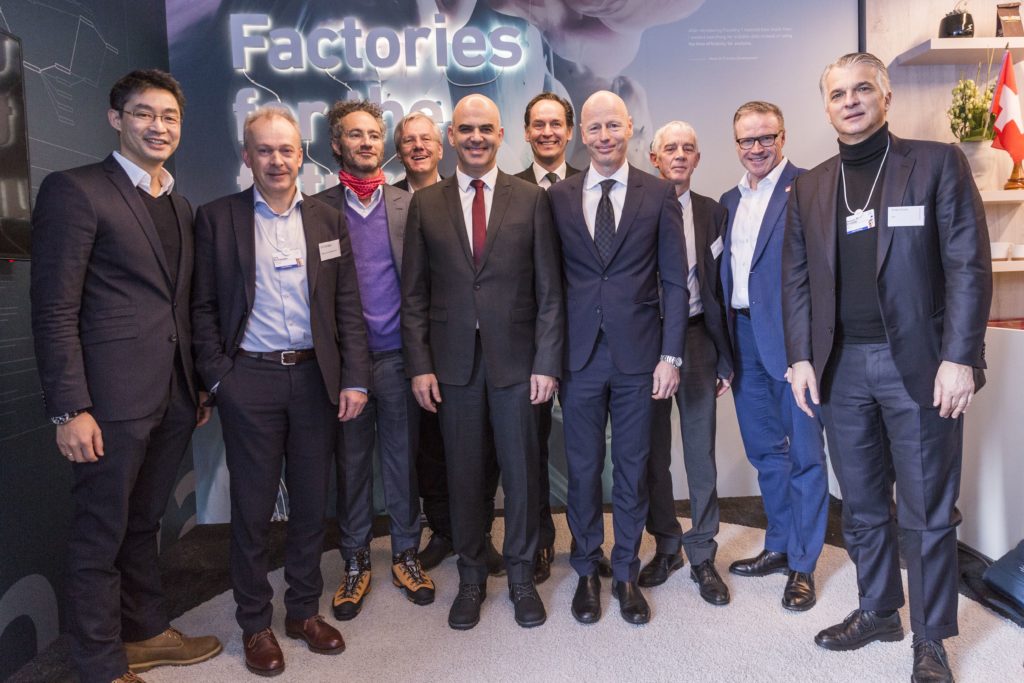The early bird catches the worm! This saying was particularly true on Wednesday, 24 January 2018. digitalswitzerland organized a high-level panel discussion and breakfast on the topic: «Switzerland, the world’s most innovative country at the intersection of technological innovation and social acceptance.» At the panel in the Palantir Pavillon in Davos discussed early risers Alain Berset, President of the Swiss Confederation, Alexander Karp, CEO and co-founder of Palantir, Philipp Rösler, former managing director of WEF and Marc Walder, CEO of Ringier and initiator of digitalswitzerland. The digitalswitzerland-breakfast was attended by many C-Level members of digitalswitzerland.

Photo Credit: Schweizer Illustrierte
After a short introduction of Alexander Karp, where he talked about the journey of Palantir technologies and hippie times, he addressed the issue of data. According to Karp the big challenge is the question of who controls data ownership. What happens with our data should not be decided in Silicon Valley, he believes. Instead the state should make the final decision regarding data ownership, privacy and ethical questions. Karp: «Digitization raises moral, ethical and economic questions that can only be answered by the state.»
Defining the Swiss digital identity
Another topic discussed, concerned the importance of a digital identity in Switzerland. Marc Walder thinks that companies have the responsibility to be transparent and open when it comes down to personal data. It is a trust issue: «People need to know what happens with their data.» He further pointed out that if we look at the ten most valuable tech companies, we see that there are zero tech companies in Europe. «For Switzerland it is about being an innovation driver and not being a copycat nation.» In his words, Switzerland is «feeling very little pain» and needs to understand the importance of ‘being digital.’
One other thing that makes our country a more ‘digital Switzerland’ is education. Marc Walder told the audience that his daughter is still learning the exact same subjects as he himself did, 45 years ago. «She goes to school as there were no digital skills needed.» Walder proposes that mandatory coding classes could be a way for children to get ready for a a more and more digitized world. Alain Berset added to this statement that children should especially acquire social competences to be able to understand what the digital transformation means in concrete terms. Geneva councilor Pierre Maudet, who was present in the audience, proposed that children could for example learn how to pitch. Getting to the heart of a big idea in short sentences is according to him a skill that is useful in every kind of learning or work environment.
The Swiss business leaders who gathered early in the morning not only left well fed, but also with new food for thought. How can Switzerland stay on top in terms of digital innovation and become an innovation driver, while dealing with sensitive issues such as data privacy? What role will have the private, but also the public sector in the digital transformation? These questions will continue to be of concern for thinkers, transformers and everyone on an individual level.
digitalswitzerland will try to stay on top of all these things as well, please subscribe to our bi-weekly newsletter and we will keep you posted!
Photo Credit cover picture: Palantir







